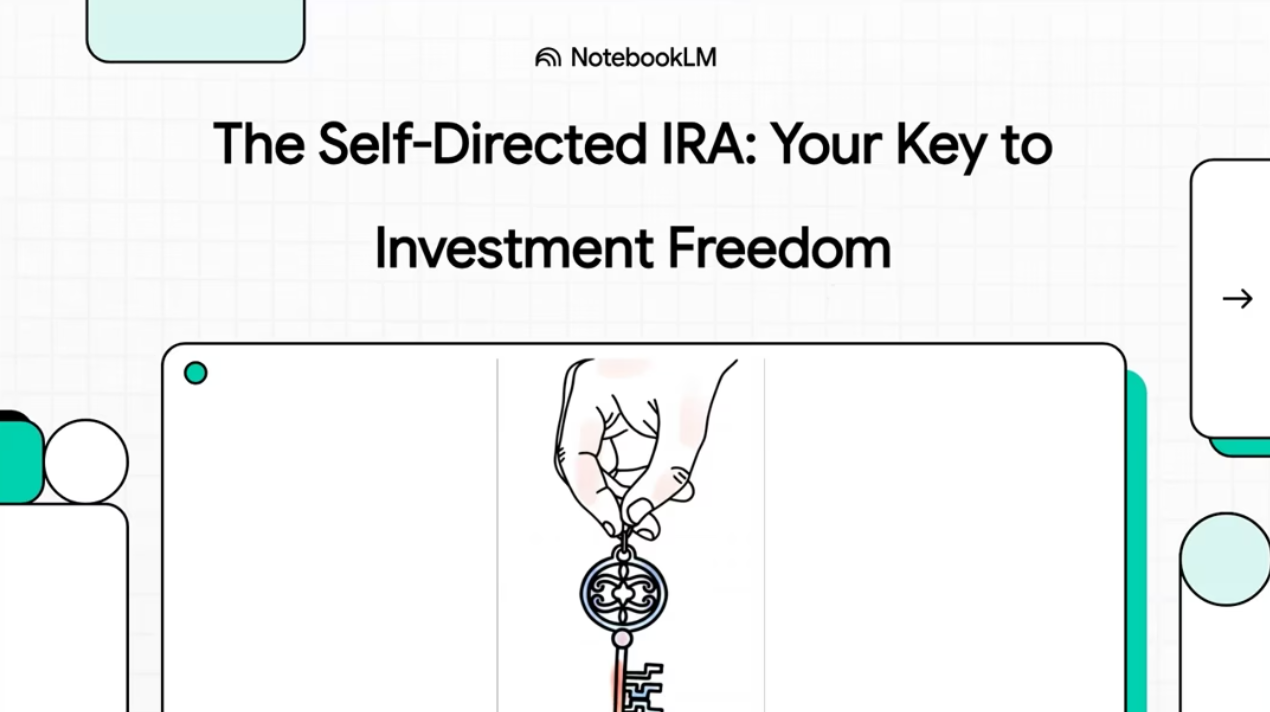Syndication Diligence: Evaluating a Sponsor

Real estate syndications are a very popular choice for investors with self-directed IRA and Solo 401(k) plans. There are many reasons that syndications are well suited to retirement plan investing, as they are passive in nature, provide diversification, and do not produce liability exposure. A well-run syndication can also be a very good investment when it comes to return on investment for your tax-sheltered retirement savings.
As with so many of the great alternative asset opportunities that are available to a self-directed IRA, the key is finding the right deal to invest in. A professionally run project in a good market with the right property and financing can produce solid returns. If one or more key pieces is not executed properly, the investment can be lackluster, or worse.
We are going to dedicate a few articles to performing diligence on real estate syndications, focusing on the sponsor, the property, and the financial terms. Let us start with probably the most important piece, which is selecting the right syndication sponsor.
Syndications Come in Many Flavors
Any larger real estate project can be funded by bringing together multiple investors. You can have 5 investors partner to purchase a small apartment with 6-10 units, or 50 investors on a 300-door community. Property types range from multifamily residential to commercial retail and office space, storage facilities, and industrial properties.
The diligence necessary to join a few of your professional associates or golfing buddies on a partnership is quite different than evaluating a professional syndication sponsor on a deal where your IRA or Solo 401(k) will simply be one of many limited partners with little operational control.
We are going to focus on syndications where there is a true sponsor running the deal as a general partner, and your plan investment will be as a limited partner.
Experience Matters
I’m sorry, but if Frank is a software sales executive who just finished a 3-day syndication bootcamp and is putting together his first deal, Frank is probably not getting my IRA money as an investor. Even if I know and trust Frank, I’m just not putting my retirement savings at risk with an inexperienced player.
Real Estate syndications are a complex environment, and only experience can teach one how to properly hold together the various pieces of the puzzle.
A good syndication sponsor should have several deals that have been successfully executed to completion or are at least well along their life cycle and performing as projected. Historical performance is never a guarantee of future success, but the ability to achieve success is a strong positive indicator.
Gauging experience can take place on many levels:
- What is the professional background of the leadership team? Does it align with real estate syndications in areas of real estate acquisition and finance, legal, tax and securities regulations, and construction management, property management, etc.?
- How many deals has the sponsor executed?
- How many deals of this particular type has the sponsor executed? Success in multifamily residential does not necessarily equate to expertise in commercial office space.
- How many deals has the sponsor done in the target real estate market, and how familiar are they (or an underlying team player) with the market?
- If a team involves multiple players for acquisition, construction and maintenance , property management, and other services, have they worked together as a team in the past?
Property Acquisition & Finance
The old adage that you make money when you buy in real estate holds true in larger deals that are commonly syndicated.
As part of evaluating a deal sponsor, you should look into the type of team they have in place and the methodology they use to identify, acquire, and finance property.
In some cases, the key focus and expertise of a syndicator is real estate acquisition. Other times, they may have more of a team building, operations, or asset manager focus, and work with an in-market realtor to find deals.
The focus of the principal is not always critical here, so long as they fully understand how to buy right and have the resources to properly put together the acquisition phase of a project.
Local market expertise is crucial. Just because someone can pull off a successful project in Dallas does not mean they can get it right in Des Moines. So much of what makes most syndications successful is properly identifying the opportunity to purchase at a good price where there is potential to add value. Understanding the economic and demographic trending in a location, as well as what other similar properties are available to potential tenants is a key skill that must be present on the project team.
Part of buying right is utilizing appropriate financing. A good sponsor will have solid relationships with lenders and the kind of track record necessary to obtain favorable lending terms for the project.
Tax & Legal Matters
Real estate syndications are a form of security. At a certain level, the syndication sponsor is acting as an asset manager. When evaluating an opportunity to invest, it is important to gauge the ability of the sponsor to properly navigate the legal and regulatory framework in which they are operating.
There are several questions you can ask in this area that should help you to determine whether a sponsor knows what they are doing on the tax and legal front.
What CPA firm are they working with?
What legal counsel are they working with?
In both cases, a team that has specific expertise in the securities and reporting issues that apply to syndications should be on board.
Ask if they will be performing a cost-segregation study. While the benefits of accelerated depreciation to not apply to retirement plan investors, most any large project will benefit from this strategy and a smart sponsor will be conversant in this area. Give them bonus points if they understand and disclose to you that accelerated deprecation will not apply to your retirement plan. Most sponsors are not aware of this.
Ask questions about what kind of financial communications you can expect and the timing of when reporting will take place. Confirm these details with references if possible. As an investor, you should receive regular and prompt performance reporting and delivery of end of year tax documents such as IRS form K-1.
Ask what happens if the sponsor dies or is incapacitated, so you can determine if a viable succession plan is in place.
IRA Specific Questions
A sophisticated and experienced investment sponsor will be familiar with the special concerns that face retirement plan investors in their deal.
As you are evaluating a project, be sure to mention that you are considering investing with IRA or 401(k) funds. Rather than ask a lot of leading questions, see if they respond from a point of knowledge. An educated sponsor should know that an IRA is exposed to taxation on leveraged income, which most syndications produce, and that a Solo 401(k) is not. They should also know that the accelerated depreciation that can be produced by cost segregation does not apply to an IRA investor.
You don’t need to expect the sponsor themselves to be an expert in self-directed retirement plans, but they should have a working knowledge, and players on their team who are well versed in the implications of attracting IRA money to their deal.
The private placement memorandum should have clear language related to special considerations for IRA and 401(k) investors, and disclosures about the potential for a deal to create Unrelated Business Taxable Income or Unrelated Debt-Financed Income.
The best syndicators will have a referral to a CPA who can assist with preparation of IRS form 990-T for IRA investors subject to UDFI.
We’ve seen a good number of syndicators who only know they want to attract IRA money, but not have educated themselves in this area. They tend to be good at making incorrect statements as a result. This lack of sophistication is a real red flag.
References
You should definitely take the time to seek out references and speak with them. Don’t just focus on the one or two happy campers the sponsor is likely to hand over to you, however. Ask to speak with the least satisfied investor on a previous deal.
If you can, search out vendors that have worked with the syndication team in the past and see what they have to say about how they do business. Are they fair and reasonable in their expectations? Do they pay their bills on time? Do they ask partners to cut corners? You can learn a lot from these types of inquiries.
Background Checks
Before you hand over a significant sum of money to any investment provider, you owe it to yourself to run a background check.
Trust and Communication
With real estate syndications, you are ultimately investing in the project team. As a limited partner investor, you will have little input or control over the actual property investment.
You want to be sure the project sponsor will protect your capital, produce good results, and be transparent with investors throughout the life of the project.
Taking the time to get beyond general marketing presentations and learn about how the team is constructed, what their experience is, and how well they communicate is really the most important step in your evaluation process.
What our clients says about us
Quick answers to common questions
We’ll take you through a simple, step by step process designed to put your investment future into your own hands…immediately. Everything is handled on a turn-key basis. You take 100% control of your Retirement funds legally and without a taxable distribution.
YES! In 1974, Congress passed the Employee Retirement Income Security Act (ERISA) making IRA, 401(k) and other retirement plans possible. Only two types of investments are excluded under ERISA and IRS Codes: Life Insurance Contracts and Collectibles (art, jewelry, etc.). Everything else is fair game. IRS CodeSec. 401 IRC 408(a) (3)
It’s actually pretty simple. Early on, regulators let the securities industry take the lead in educating the public about retirement accounts. Naturally, brokers and banks promoted stocks, bonds, and mutual funds—giving the impression that those were the only allowed investments. That was never true... and still isn’t. You can probably guess why they kept the rest under wraps.
It is possible to use funds from most types of retirement accounts:
- Traditional IRA
- Roth IRA
- SEP IRA
- SIMPLE IRA
- Keogh
- 401(k)
- 403(b)
- Profit Sharing Plans
- Qualified Annuities
- Money Purchase Plans
- and many more.
It must be noted that most employer sponsored plans such as a 401(k) will not allow you to roll youraccount into a new Self-Directed IRA plan while you are still employed. However, some employers will allow you to roll a portion of your funds. The only way to be completely sure whether your funds are eligible for a rollover is by contacting your current 401(k) provider.
A Solo 401(k) requires a sponsoring employer in the format of an owner-only business. If you have a for-profit business activity – whether as your main income or as a side venture – and have no full-time employees other than potentially your spouse, your business may qualify. The business may be a sole-proprietorship, LLC, corporation or other entity type.
A self-directed retirement plan is a type of IRA or 401(k) that gives you greater control over how your retirement funds are invested. Unlike traditional accounts held at banks or brokerage firms that limit you to stocks, bonds, and mutual funds, self-directed plans allow you to invest in a wide range of alternative assets including real estate, private businesses, precious metals, cryptocurrency, and more.
These plans still follow the same IRS rules and maintain the same tax-deferred or tax-free benefits as conventional retirement accounts. The difference is simply in how and where you choose to invest.
No. Moving to a self-directed IRA or Solo 401(k) does not trigger any taxes, as long as your funds are eligible for rollover.
Self-directed retirement plans maintain the same tax-advantaged status as traditional plans offered by banks or brokerage firms. The key difference is flexibility—our plans are designed to give you greater control and allow for a wider range of alternative investments beyond stocks, bonds, and mutual funds.
A prohibited transaction is any action between your retirement plan and a disqualified person that violates IRS rules and can lead to serious tax consequences. Under IRS Code 4975(c)(1), prohibited transactions include:
- Selling or leasing property between your plan and a disqualified person Example: Your IRA cannot purchase a property you already own.
- Lending money or extending credit between the plan and a disqualified person Example: You cannot personally guarantee a loan your IRA uses to buy real estate.
- Providing goods or services between your plan and a disqualified person Example: You can’t use your personal furniture to furnish a rental property owned by your IRA.
- Using plan income or assets for the benefit of a disqualified person Example: Your IRA cannot buy a vacation home that you or your family use.
- Self-dealing by a fiduciary (using plan assets for their own benefit) Example: Your CPA shouldn't loan your IRA money if they’re advising the plan.
- Receiving personal benefit from a deal involving your IRA's assets Example: You can’t pay yourself from profits your IRA earns on a rental.
If a transaction doesn’t clearly fall within the allowed guidelines, the IRS or Department of Labor may review the situation to determine if it qualifies as a prohibited transaction.
Disqualified persons are individuals or entities that are prohibited from engaging in certain transactions with your IRA or 401(k). Doing so could trigger a prohibited transaction, which may result in taxes and penalties.
Here’s who is considered a disqualified person:
- You (the account holder)
- Your spouse
- Your parents, grandparents, and other ancestors
- Your children, grandchildren, and their spouses
- Any advisor or fiduciary to the plan
- Any business or entity owned 50% or more by you or another disqualified person, or where you have decision-making authority
These rules exist to prevent self-dealing and ensure your retirement plan remains in compliance with IRS regulations.
(Reference: IRC 4975)
Understanding and following these rules can be tricky, but it’s very doable. The best way to stay compliant is to work with professionals who specialize in self-directed retirement plans. They can help you navigate IRS guidelines and avoid prohibited transactions.
If an IRA holder is found to have engaged in a prohibited transaction with IRA funds, it will result in a distribution of the IRA. The taxes and penalties are severe and are applicable to all of the IRA’s assets on the first day of the year in which the prohibited transaction occurred.
Yes. While self-directed retirement plans allow for a wide range of investments, there are a few important restrictions.
You cannot invest in collectibles or life insurance contracts, and you must avoid prohibited transactions—activities that benefit you personally rather than the retirement plan. These include things like buying or selling property to yourself or family members, using plan assets for personal gain, or self-dealing in any way.
Violating these rules could cause your entire IRA to lose its tax-advantaged status. To protect your account, it’s essential to work with professionals who understand IRS regulations and can help you stay compliant.
This is a common misconception. In many cases, professionals may simply be unfamiliar with self-directed retirement plans, as they fall outside their usual scope of work. CPAs and tax preparers are trained to file taxes, not necessarily to advise on alternative retirement strategies. Financial advisors and brokers often work for firms that focus on traditional investments like stocks and mutual funds—and may not benefit from or support alternative options like real estate or private lending.
Self-directed retirement investing is legal under IRS rules—but like any specialized area, it requires working with professionals who understand how it works.
The IRS has rules in place to make sure your IRA is used only for the exclusive benefit of the retirement account—not for personal gain or to help family members. These rules can get complicated because there are many ways a conflict of interest can occur, even unintentionally.
For example, if your IRA buys a house and rents it to your mother, you might be reluctant to evict her if she stops paying rent. That emotional connection creates a conflict between what’s best for your IRA and your personal relationships, something the IRS aims to prevent.
These rules help ensure your retirement account stays compliant and protected. (See IRC 408)
Yes. Most tax-deferred retirement accounts—such as Traditional IRAs, old 401(k)s, 403(b)s, and TSPs—can be rolled over into a self-directed IRA or Solo 401(k), depending on your eligibility. Roth IRAs cannot be rolled into these accounts.
You can contribute directly from earned income, subject to annual IRS contribution limits. The method and amount depend on the type of plan you have (e.g., Solo 401(k) vs. IRA).
To take a distribution, you'll request funds through your custodian or plan administrator. Distributions may be taxable depending on your account type and age. Early withdrawals may be subject to penalties.
For 2025, the Solo 401(k) max contribution limit is $81,250 if age 60-63, $77,500 if age 50-59 or 69+, and $70,000 if under 50. Traditional and Roth IRAs have a limit of $7,000 ($8,000 if age 50+). Limits are subject to IRS adjustments.
Yes. IRA contributions are typically due by your personal tax filing deadline (e.g., April 15). Solo 401(k) contributions follow your business tax filing deadline, including extensions.
IRS reporting requirements vary depending on the type of self-directed retirement plan you have. Here’s a quick breakdown of what you need to know
Please note: Our team can help you understand what’s required for your specific account, but we don’t provide tax or legal advice. We always recommend working with a qualified tax professional to ensure full IRS compliance.
Self-Directed IRA (Traditional or Roth)
- Form 5498 – Filed by your custodian each year to report contributions, rollovers, and the fair market value (FMV) of your account.
- Form 1099-R – Issued if you take a distribution or move funds out of your IRA.
- Annual Valuation – You'll need to provide updated FMV for any alternative assets held in the account, such as real estate or private placements.
Solo 401(k)
- Form 5500-EZ – Required if your plan assets exceed $250,000 as of year-end. Must be filed annually by the plan participant.
- Form 1099-R – Required if you take a distribution or roll funds out of the plan.
- Contribution Tracking – Keep records of employee and employer contributions. These are not filed with the IRS but may be needed for tax reporting or audits.
SEP IRA
- Form 5498 – Filed by your custodian to report contributions and FMV.
- Form 1099-R – Filed by your custodian. Issued for any distributions.
- Employer Contributions – Must be reported on your business tax return (and on employee W-2s, if applicable).
Health Savings Account (HSA)
- Form 5498-SA – Filed by your HSA custodian to report contributions.
- Form 1099-SA – Filed by your HAS custodian. Issued for any distributions.
- Form 8889 – Must be included with your personal tax return to report contributions, distributions, and how funds were used.







